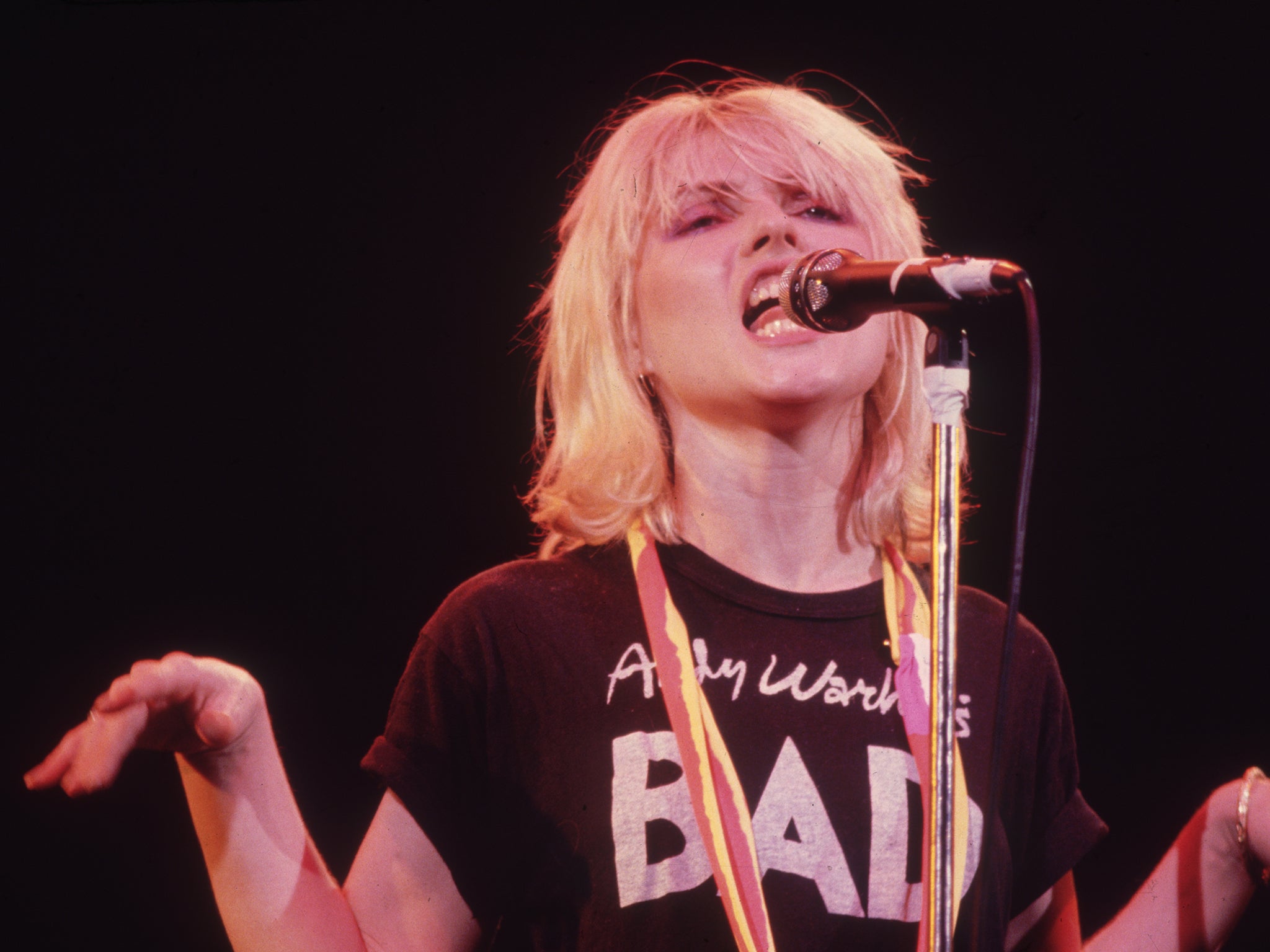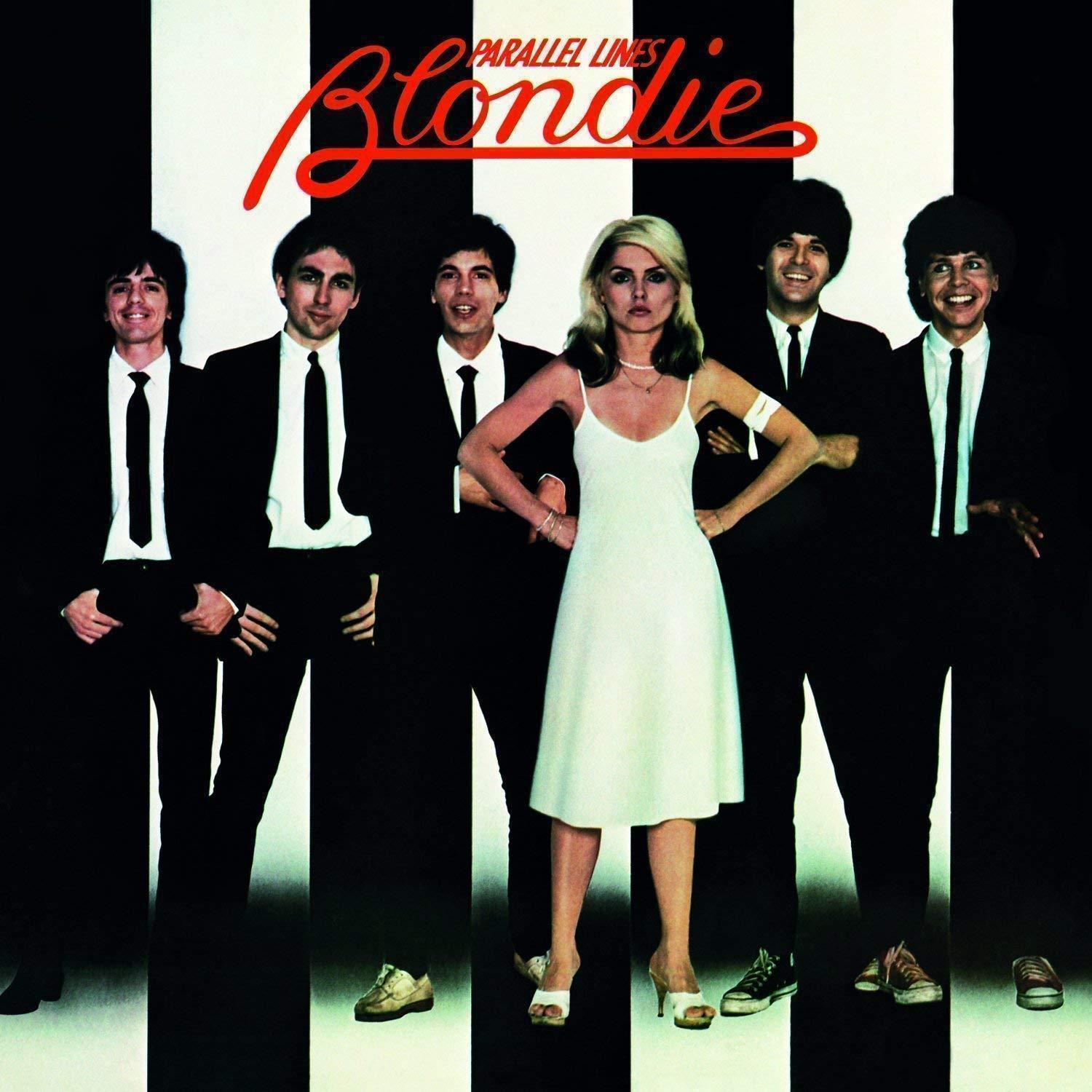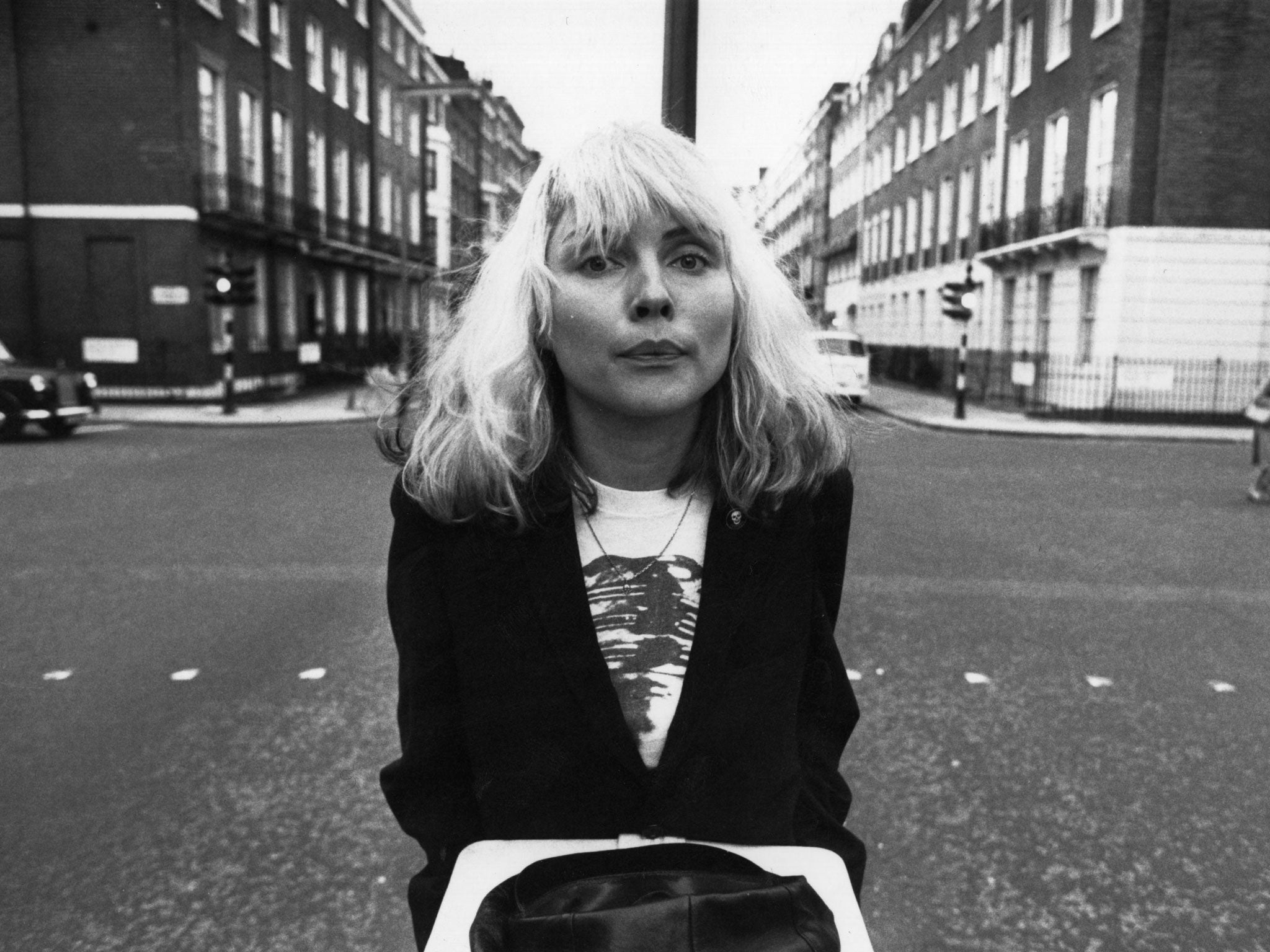The 10 best songs by Blondie, from ‘Call Me’ to ‘Hanging on the Telephone’
As Debbie Harry turns 75, Roisin O’Connor goes through the band’s catalogue


Your support helps us to tell the story
From reproductive rights to climate change to Big Tech, The Independent is on the ground when the story is developing. Whether it's investigating the financials of Elon Musk's pro-Trump PAC or producing our latest documentary, 'The A Word', which shines a light on the American women fighting for reproductive rights, we know how important it is to parse out the facts from the messaging.
At such a critical moment in US history, we need reporters on the ground. Your donation allows us to keep sending journalists to speak to both sides of the story.
The Independent is trusted by Americans across the entire political spectrum. And unlike many other quality news outlets, we choose not to lock Americans out of our reporting and analysis with paywalls. We believe quality journalism should be available to everyone, paid for by those who can afford it.
Your support makes all the difference.Blondie emerged out of New York’s punk scene in the Seventies, only to be snubbed by their peers as too pop to be punk. But frontwoman Debbie Harry refused to give up her natural sense of glamour in order to be taken seriously by her snobbish contemporaries.
“I was playing up the idea of being a very feminine woman while fronting a male rock band in a highly macho game,” writes Harry in her 2019 memoir, Face It. “I was saying things in the songs that female singers really didn’t say back then. I wasn’t submissive or begging him to come back, I was kicking his ass, kicking him out, kicking my own ass, too.”
Blondie ploughed ahead with their ironic take on dance music, incorporating elements of disco, rock, reggae and, yes, even rap. Harry played up her public image as a sex bomb but was never afraid to be silly. As Harry celebrates her 75th birthday this week, here are Blondie’s 10 greatest songs, ranked.
10) “Rapture” (1981, from Autoamerican)
“Rapture” makes this list largely because it holds such important status in the Blondie canon (it was the first No 1 in the US to include rap). When you pay attention to the lyrics, the “rapping” that dominates much of the song is not good, redeemed only by Harry’s glassy falsetto, sax flourishes, and Nigel Harrison’s funky bassline.
9) “One Way or Another” (1978, from Parallel Lines)

Inspired by Harry’s stalker ex-boyfriend in the early Seventies, “One Way or Another” adds some levity to a grim personal experience. Driven by a crunchy, grinding guitar riff and shimmering percussion, Harry’s vocals are dramatic – alternatively menacing and imperious – but also comical. The song, which followed Blondie’s first No 1 single, “Heart of Glass”, closes on cartoonish siren noises that add to the general sense of madness.
8) “Rip Her to Shreds” (1976, from Blondie)
An early example of Harry’s signature deadpan delivery is heard in this withering slice of CBGBs punk, against the sharp plink of Jimmy Destri’s keyboard hook. The song is about the effects that malicious gossip can have on a person, with Harry adopting the character of the bitch (“psst psst”) and issuing devastatingly mean lyrics about another woman.
7) “Call Me” (1978, from the American Gigolo soundtrack)
Harry doesn’t get enough credit for her ability to put herself in other people’s shoes. For the soundtrack to 1980 film American Gigolo, she envisioned herself as Richard Gere’s character, a high-priced male escort. With devilishly slick production from disco don Giorgio Moroder, the song perfectly captures the seediness beneath Los Angeles’s shiny veneer. “Call Me” spent six weeks at the top of the Billboard charts, and was the biggest-selling single of 1980 in the US (ninth for the whole decade).
6) “Doom or Destiny” ft Joan Jett (2017, Pollinator)

The opening track on Blondie’s 11th album, Pollinator, encapsulates everything the band do best, not least taking a serious subject and managing to make it irreverent and fun – without losing its meaning. It’s a classic punk protest song, propelled by scuzzy guitar and propulsive drumming from Clem Burke.
5) “Fade Away and Radiate” (1978, from Parallel Lines)
This sprawling epic manages to meld sinister sci-fi with the lavishness of golden-age Hollywood. “Ooh, baby, I hear how you spend night time/ Wrapped like candy in a blue, blue neon glow.” For once abandoning her classic deadpan delivery, Harry instead adopts a Bowie-style theatricality, injecting her yearning vocals with additional flair. That they manage to get away with both a prog guitar solo and a reggae rhythm on the outro is extraordinary in itself.
Enjoy unlimited access to 100 million ad-free songs and podcasts with Amazon Music
Sign up now for a 4 month free trial (3 months for non-Prime members)
Enjoy unlimited access to 100 million ad-free songs and podcasts with Amazon Music
Sign up now for a 4 month free trial (3 months for non-Prime members)
4) “Maria” (1999, from No Exit)
One of the more underrated Blondie songs, at least when it comes to critics’ top 10s, “Maria’ marked the band’s return to the charts after almost 17 years. It’s swooning, vintage-sounding pop-rock, lifted to heavenly climes by Harry’s soaring vocals on the chorus, and the ringing of church bells.
3) “Hanging on the Telephone” (1978, from Parallel Lines)

Blondie make this song, by California pop-punk band The Nerves, their own by injecting a previously absent sense of urgency to the build, with Harry’s tone developing from stern to desperate as she begs: “Hang up and run to me.” It’s likely that British producer Mike Chapman – brought on board in 1978 to add some polish to Blondie’s rougher punk sound – was behind the UK ringtone you can hear at the beginning of the track.
2) “Atomic” (1979, from Eat to the Beat)
Spaghetti western guitar lines lasso you into this lustful track that found itself on the BBC’s list of banned songs during the first Gulf war, due to its explosive-sounding title. Clem Burke’s drumming pounds like the hooves of a galloping horse, while Harry thrills with her icy utterance of “atomic”.
1) “Heart of Glass” (1978, from Parallel Lines)
“When we did ‘Heart of Glass’, it wasn’t too cool in our social set to play disco,” Harry wrote in her 1982 book, Making Tracks (co-written with Stein and Victor Bockris). “But we did it because we wanted to be uncool.” Despite their best efforts, “Heart of Glass”, which turned Blondie into international stars after nine previous singles, is far from uncool. A strutting, disco-infused pop song with an irrepressible sequenced synth bounce, it’s pure Blondie: ironic, glamorous, and lots of fun.
Join our commenting forum
Join thought-provoking conversations, follow other Independent readers and see their replies
Comments